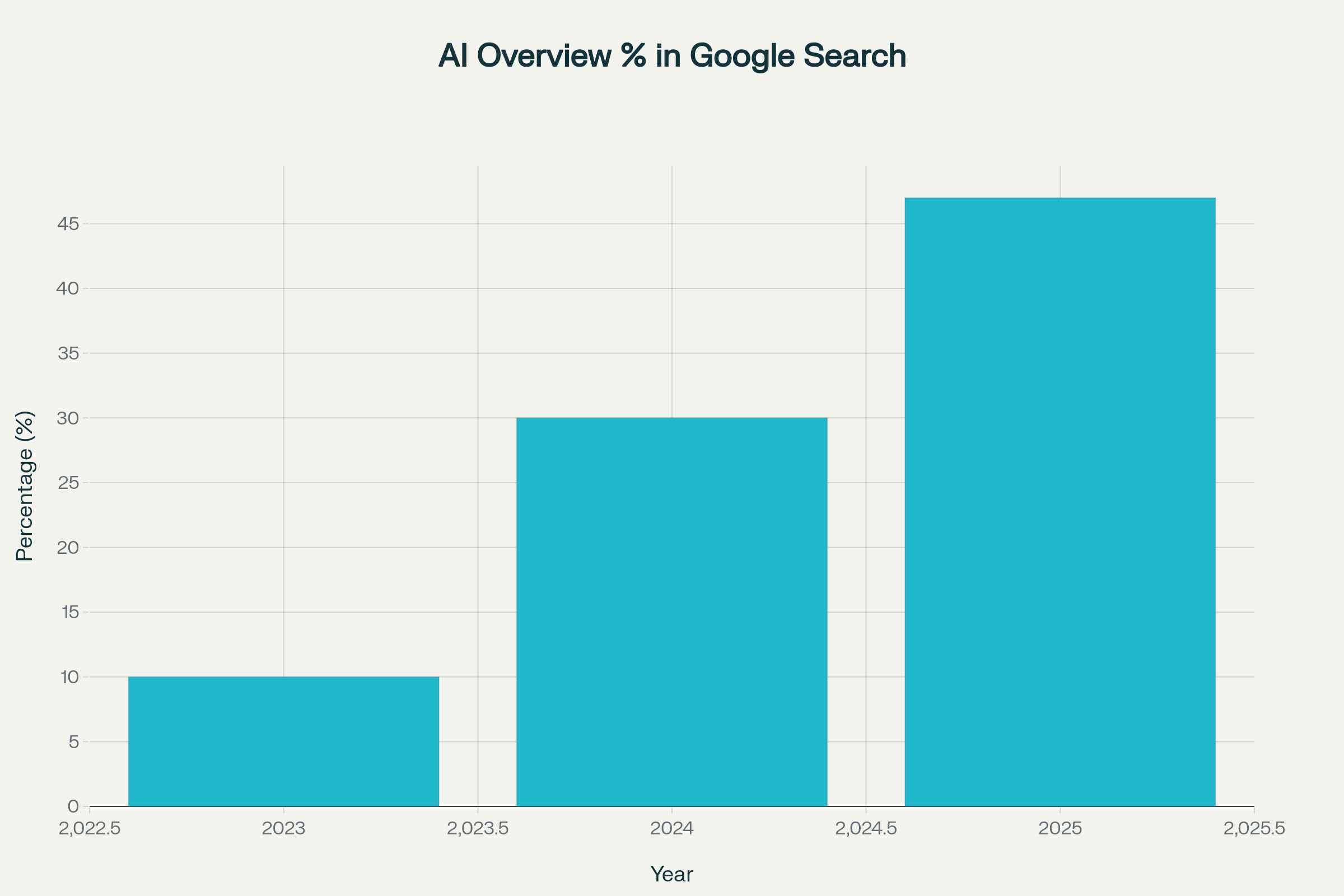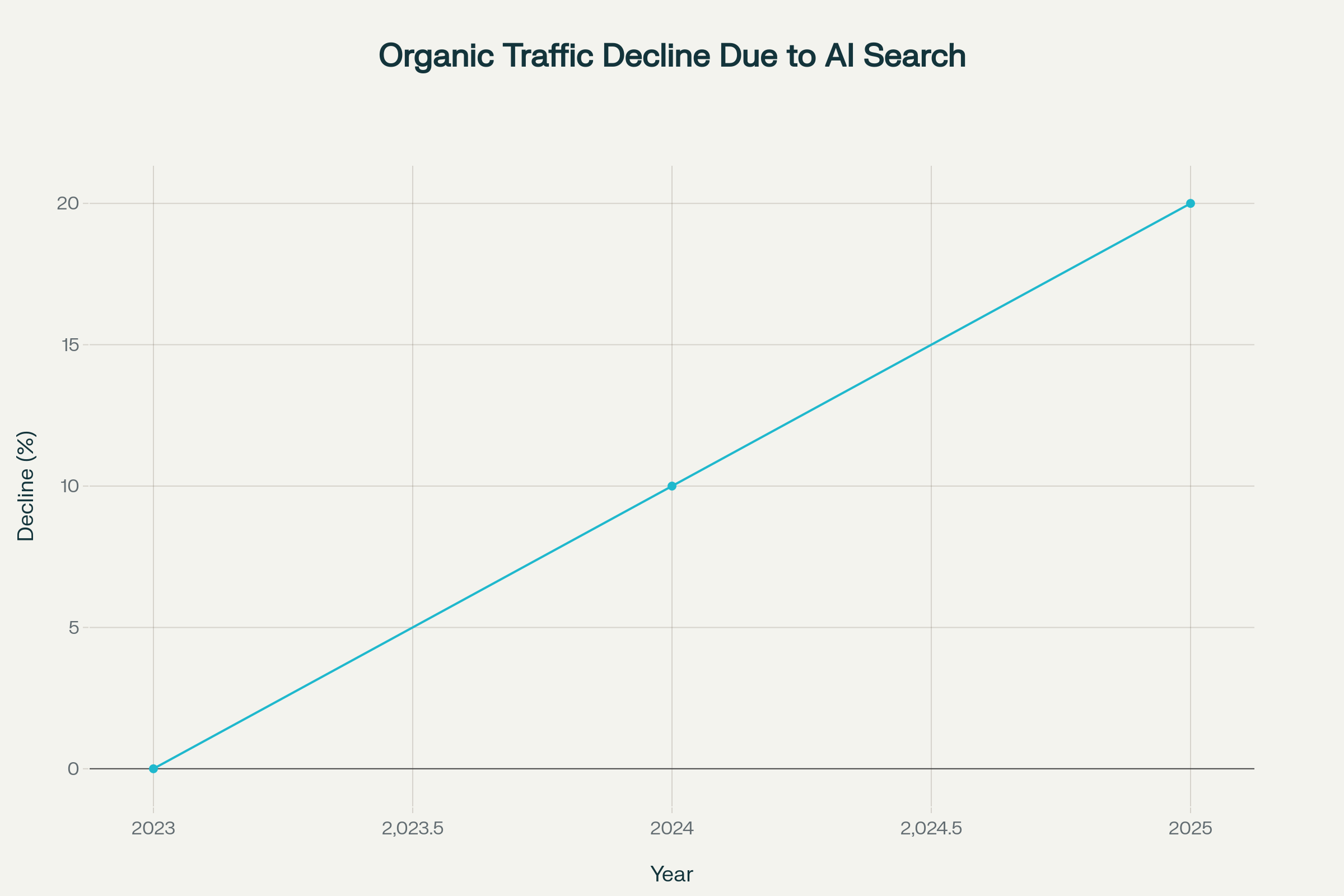The Complete Research Guide: AI's Impact on Search, Marketing & Websites in 2026
How AI and LLMs are transforming Google, Bing & search engines. Research on impact to user behavior, SEO & marketing strategy in an AI-first era
Abstract
This research investigates how large language models (LLMs) and AI technologies are reshaping search engines and marketing websites. It examines changes in user behavior, search algorithms, and SEO strategy, providing actionable insights for marketers and developers in an era defined by conversational, context-driven search.
Introduction
Search engines traditionally relied on keyword matching to deliver results. With the integration of advanced AI—especially LLMs—search has evolved to understand user intent and context, enable natural language queries, and generate more comprehensive answers.
Evolution of User Behavior
Modern search users increasingly phrase queries as complex, conversational questions. AI-powered engines interpret these queries more contextually, delivering richer, directly useful responses. For example, 47% of Google search results in 2026 now trigger an AI Overview, greatly impacting user engagement patterns and organic traffic.
Chart: Growth of AI Overview Triggered Google Search Queries (2023–2025)

AI Integration in Search Engines
- Google: Rolls out the Search Generative Experience (SGE), making AI-generated summaries and contextual answers available to millions of users.
- Bing: Integrates Microsoft Copilot and generative AI to supplement traditional rankings with dynamic, visual responses.
- Perplexity: Acts as an AI-powered intermediary, summarizing and clarifying results from existing indexes.
Search engine strategies are shifting from keyword-focused to contextual, AI-driven result generation.
SEO and Marketing Implications
SEO now goes beyond keywords; content must align with user intent and provide meaningful, context-rich answers.
The rise of AI-generated summaries and features—such as AI Overviews—has led to an estimated 15–25% drop in organic web traffic from SERPs.
Chart: Estimated Decline in Organic Website Traffic Due to AI-Powered Search (2023–2025)

Optimizing for multimodal inputs—text, audio, images—is also growing in importance as user behaviors shift.
Case Studies: AI SEO Performance
- Flyhomes (Real Estate): Increased content from 10K to 425K pages, achieving 1.1M monthly visits, with AI guides responsible for 55.5% of all traffic.
- Xponent21: Saw 4,162% organic traffic growth in 12 months by targeting rankings in AI-powered engines like Perplexity and Google AI Mode.
Expert Insights
“AI has leveled the playing field for scrappy, tech-aware businesses…If you aren’t using AI in your daily strategy, you risk falling behind within the next 12–18 months.”— Dan Shaffer, Director, SEO.com
“The Google App sees about 20% of searches through voice commands…Users speak naturally in voice searches.”— Industry interview, 2026
Bing vs. Google AI Search - Key Differences in 2026
Chart: Search Engine Market Share Distribution in 2025

Voice Search and New Modalities
Voice queries are becoming a significant share of search—rising from 10% of Google queries in 2023 to 20% by 2025.
Chart: Share of Google Searches Conducted by Voice (2023–2025)

Methodology
This research synthesizes the latest 2026 industry reports, market surveys, and case studies from e-commerce, SaaS, and local businesses. Data sources include global SEO surveys, expert interviews, and public performance metrics, ensuring objectivity and broad relevance.
Conclusion
Search is swiftly moving to an AI-first model. Marketers and developers must:
- Prioritize context, user intent, and rich information quality
- Optimize for AI-generated features and multimodal input types
- Track industry benchmarks, expert commentary, and shifting performance metrics
Staying proactive with AI and LLM advancements will be critical for visibility and success in search.
References
Impression Digital: Bing vs Google Search Engine Comparison 2025
Perplexity vs Traditional Search Engines: Why AI-Powered
Bing vs Google: How Microsoft's AI-Powered Search is
Semrush Report: AI Overviews' Impact on Search in 2025
NN/G: How AI Is Changing Search Behaviors
Google: AI in Search
Tangence: How Large Language Models(LLMs) Are Transforming
AI Search Industry Report 2025
Google: Generative AI in Search,Let Google do the searching for you
SEO.com: AI SEO Statistics in 2025
AIOSEO SEO: Case Studies, 2025
Mikekhorev: AI SEO Trends, 2025
Xponent21: AI SEO Case Study, 2025
Harvard Business Review: Optimize Your Brand for LLMs
Uncover deep insights from employee feedback using advanced natural language processing.
Join the Founder’s Club
$9/mo
annually
Perfect if you’re just getting started with Flozi. You get full access to the editor, SEO features, and Notion-to-Webflow sync.

.webp)
.png)
.png)
.svg)